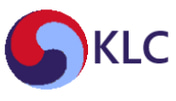Love Languages? Want to learn an exciting new language and to learn more about the Culture and lifestyle of Korea? Even if you just want to learn the words to K Pop or read the menu in a Korean restaurant and talk about the food (very important in K-Life) you've come to the right place.
Beginners Classes
Improvers Classes
Whether you are studying Languages at Uni or looking to improve your Korean Language skills to conversation level with your friends or colleagues we can help you to reach whatever level you desire. Recent clients have established good business relationships with Koreans, both in the UK and overseas, some students are now studying in Korean Universities. Talk to us today to fund out more or Click here to see our current prices
TOPIK Classes
If you are studying for TOPIK we can help you , no matter what level you are looking to reach. Most TOPIK students worry about the requirements of each level but we have a good insight of all levels from 1 to Level 6.
Technical Korean Lessons
The UK is regarded as a key partner to Korea in many areas, including social enterprise, medical equipment, and pharmaceuticals, as well as engineering. Let us help you understand the technical explanations involved no matter what levels are involved.




Korean for Business
We recognise that the relationship between South Korea and the West is not just based on the growth of K Culture , music , style and the most famous brands like Samsung and Hyundai, LG and Kia. There is a growing international dialogue between all aspects of Korean commerce and the English speak world. Recent success stories include the popularity of Korean Dramas like Squid Games. So we also offer help and advise businesses with the most accurate Translation Services, but also we can help with the Technical side of the Korean language to help you liaise with the Korean business partners.


Led by the Korean food and the fashion and music industries, Korea is now becoming an important partner for trade and tourism.
Korea's economic boom and the growing influence of K Culture on Global markets is know as The Miracle on the Han. It refers to unprecedented economic boom in South Korea following the Korean war (1950–1953), during which South Korea transformed from a developing country to a developed country in a remarkably short period.
The reconstruction and development of the South Korean economy during the latter half of the 20th century was accompanied by events such as the country's successful hosting of the 1988 summer Olympics and its co-hosting of the 2002 FIFA World Cup as well as the ascension of family-owned conglomerates known as Chaebols, such as Samsung, LG, Hyundai and others which are now among the best known global brandsToday,
South Korea stands as the 11th largest economy in the world. The Korea’s rapid transformation is attributed to the nation’s hard working ethics as well as strong faith in Education. Also, It is one of the countries that has significant cultural influence on the global culture>
Led by the Korean food and the fashion and music industries, Korea is now becoming an important partner for trade and tourism.
Korea's influence on the World




The History of the Korean Language
The history of writing in the Korean peninsula begins with the Chinese characters arriving in Korea together with Buddhism during the Proto-Three Kingdoms era from BC 57 to AD 660. It was adapted for Korean and became known as Hanja, and remained as the main script for writing Korean through over a millennium alongside various phonetic scripts that were later invented such as Idu and Gugyeol.
Mainly privileged elites were educated to read and write in Hanja, In the interest of decreasing illiteracy, King Sejong the Great developed an alphabetic writing system in the 15th Century. This is known today as Hangul.
The King felt that writing Hanja was difficult to learn, so the illiterateracy was increasing. Hangul was originally designed to replace Hanja entirely. Unfortunately, the system was denounced by the Korean aristocrats in Conservative Party due to its simplicity. It used to be called "Morning letter" meaning that it can be learnt within one morning. The Korean nobles were against the use of Hangul.
However, it quickly spread nationwide, and accordingly increased the level of literacy in Korea. It played vital role in reducing the knowledge gaps in between the aristocrats and the peasants. Despite that the Hangul was widely used by all Korean classes, the official documents were still written in Hanja during the Choseon era due to the insistence of a conservative aristocratic class.
Today, Hangul is largely used in everyday life in Korea and officially recognised as Korean Characters. Hangul is used by the Korean people in both North Korea and South Korea and by Koreans throughout the world. Korean is the fourth most popular foreign language in China, following English, Japanese, and Russian.
